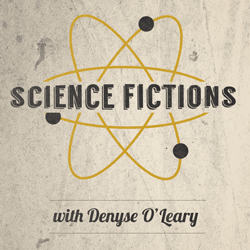 Evolution
Evolution
 Human Origins
Human Origins
Post-Election Special: The Evolutionary Psychologist Knows Why You Vote — and Shop, and Tip at Restaurants

Ever since Darwin’s The Descent of Man, in which he proposed the theory of sexual selection (how some are selected to pass on their traits), his followers have extended his thoughts to encompass just about all aspects of human nature.
 First there was social Darwinism, which fell into disfavor after World War II because its theories justified colonialism, exploitation of labor, and eugenics. These policies were developed much earlier and for reasons unrelated to Darwinian theory, but the theory was easily co-opted to justify them. Later, in the 1970s, sociobiology blossomed. Sociobiologists, using insect colonies as their model, explained human behavior that seemed a puzzle — such as kindness to strangers — as originating in the way that our genes get passed on because genes are shared, in large part, with relatives. Sociobiology became controversial, however, when it attracted allegations of racism.
First there was social Darwinism, which fell into disfavor after World War II because its theories justified colonialism, exploitation of labor, and eugenics. These policies were developed much earlier and for reasons unrelated to Darwinian theory, but the theory was easily co-opted to justify them. Later, in the 1970s, sociobiology blossomed. Sociobiologists, using insect colonies as their model, explained human behavior that seemed a puzzle — such as kindness to strangers — as originating in the way that our genes get passed on because genes are shared, in large part, with relatives. Sociobiology became controversial, however, when it attracted allegations of racism.
But soon after, a much broader movement burst on the scene — evolutionary psychology (evo psych). Almost all human ideas can be explained, we are told, as the functional products of natural selection in our remote ancestors.
We may not know why we do things, but the evolutionary psychologist does. He knows, by the methods of science, the "truth" about shopping, voting, or tipping at restaurants.
Evolutionary psychology does not, for the most part, explain puzzling human behavior. It offers Darwinian explanations for conventional behavior that are intended to supplant traditional ones. For example, why we are sexually jealous (not fear of abandonment, but "sperm competition"); why we don’t stick to our goals (evolution gave us a kludge brain); why music exists (to "spot the savannah with little Pavarottis"); why art exists (to recapture that lost savannah); why many women don’t know when they are ovulating (if they knew, they’d never have kids); why some people rape, kill, and sleep around (our Stone Age ancestors passed on their genes via these traits), and why big banks sometimes get away with fraud (we haven’t evolved so as to understand what is happening).
Evo psych also accounts for anger over trivial matters (it was once key to our survival), dreams (they increase reproductive fitness), false memories, (there might be a tiger in that tall grass…), menopause (men pursuing younger women), monogamy (control of females or else infanticide prevention — of one’s own children only), music (to ward off danger), premenstrual syndrome (breaks up infertile relationships), romantic love (not an emotion, rather a hardwired drive to reproduce), rumination on hurt feelings (our brains evolved to learn quickly from bad experiences but slowly from the good ones), smiling (earlier, a cringe reaction), and wonder at the universe (explained by how early man lived).
It feels like emptying Darwin’s wastebasket.
Darwinian explanations of morality, self-sacrifice, politics, and religion will each be considered in detail in later installments. These more consequential behaviors seem to pose a greater problem for a Darwinian worldview because the explanations offered are especially numerous and contradictory.
Meanwhile, run-of-the-mill accounts, such as those noted above, can comfortably conflict with obvious facts about human nature. See, for example, Psychology Today’s #1 of "Ten Politically Incorrect Truths About Human Nature": Men prefer women with big breasts, we are told, because they make fertility easier to ascertain, and primeval man unconsciously sought to spread his selfish genes.
Indeed? Men typically prefer more pleasure of all kinds to less — big paychecks, big cars, big steaks, and all things ample, but not necessarily more mouths to feed, entailing more labor. Intelligent animals prefer abundance too. Most of them are genetically distant from us. If intelligent invertebrates should pass the test, we must go back a long way for the origin of a preference for abundance, back to the Cambrian era perhaps. Psychology Today‘s #1 explanation does not account well for explicitly human behavior (quite the opposite). But it better maps human behavior onto Darwinian thinking, and that is the goal.
Evo psych explanations can also dispense with historical fact. For example, in Delusions of Gender (2010), Cordelia Fine recounts an evo psych explanation of why little girls are dressed in pink (their brains evolved to process emotion differently). That must have been one of the few genuine instances of rapid human evolution ever recorded, because the practice of dressing girls in pink only took root in the twentieth century. [1] But no matter. Give us Darwin; we can forget history. The accounts can even fail as parody. Neuroscientist Vilayanur Ramachandran tried parody with "Why Do Gentlemen Prefer Blondes?", but there is no reason not to take his explanation as seriously as all the others.
Science writer Hank Campbell offers a suggestion as to why the nonsense, both high and popular, goes largely unchallenged: "Scientists are inclined to give it a break because they cleverly use the word ‘evolutionary’ in the name." If it sounds plausible, that is evidence that it is true. But if it doesn’t sound plausible, that just shows how counterintuitive real science can be.
A number of voices of reason have been heard over the years. The best-known dissent is not religious, incidentally. Common-sense philosophers David Stove and Jerry Fodor have written books, respectively Darwinian Fairytales and What Darwin Got Wrong, assailing evo psych’s simplistic, counterintuitive assertions. Social scientists such as Steven and Hilary Rose, editors of the anthology Alas, Poor Darwin, weigh in on its ad hoc assumptions about human behavior. Journalist Sharon Begley (Newsweek 2009) notes the evolutionary psychologists’ characteristic backpedalling when challenged on extreme claims, and their comfort with undemonstrable hypotheses:
From its inception, evolutionary psychology had warned that behaviors that were evolutionarily advantageous 100,000 years ago (a sweet tooth, say) might be bad for survival today (causing obesity and thence infertility), so there was no point in measuring whether that trait makes people more evolutionarily fit today. Even if it doesn’t, evolutionary psychologists argue, the trait might have been adaptive long ago and therefore still be our genetic legacy. An unfortunate one, perhaps, but still our legacy. Short of a time machine, the hypothesis was impossible to disprove.
Medical historian Andrew Scull, reviewing a book on psychiatry’s current legitimacy crisis (2012), writes that the theories of evolutionary psychology are "unnecessary, and get in the way of an argument that depends on no more than the self-evident proposition that all of us experience fears and anxieties, which are intensified in certain social situations and by large-scale trauma, but which cannot be termed ‘mental illnesses.’"
Indeed. At the heart of evo psych is one searing contradiction: "Evolution" is supposed to be the heart and soul of its method, yet adherents believe that nothing has fundamentally changed in at least the last quarter million years. And yet that is not the sort of obvious question one is supposed to raise about their work, is it?
In which case, evo psych really says far more about the culture that created it than about the history of the human race.
References Cited:
(1) Cordelia Fine, Delusions of Gender: How Our Minds, Society, and Neurosexism Create Difference, (Norton, 2010), 208.
Editor’s note: Here is the "Science Fictions" series (the human mind) to date at your fingertips (the human mind).
